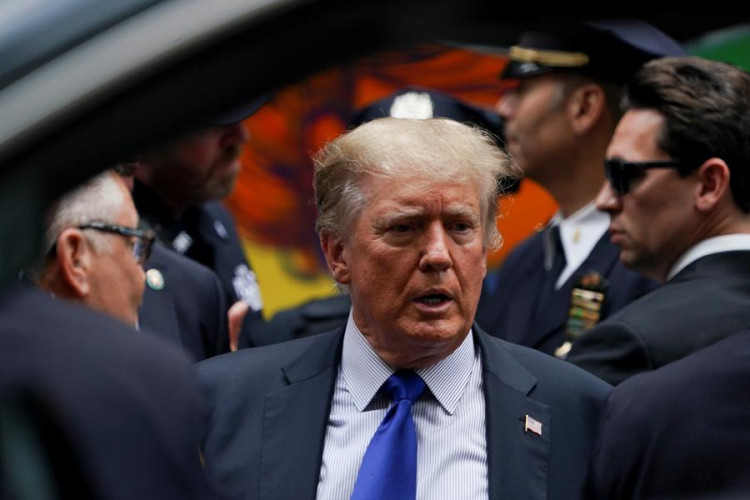As former President Donald Trump prepares to stand trial in a criminal case for the first time, legal experts are weighing the potential consequences he could face if convicted on all counts in the New York hush money trial set to begin on April 15. While Trump could theoretically face more than a decade in prison, most experts believe a sentence ranging from probation to four years in prison is more likely, with the former president likely remaining free to campaign for the 2024 Republican nomination while his expected appeal is pending.
Trump faces 34 felony counts of falsifying business records to cover up a hush money payment to adult film actress Stormy Daniels. Each count carries a maximum sentence of four years. Although Trump could, in principle, be sentenced to serve multiple counts consecutively, several experts said this is unlikely given his lack of a felony criminal record and the absence of allegations of physical violence.
However, Trump's behavior during the pretrial phase has tested boundaries and led to conflicts with Judge Juan Merchan, who will determine his fate if convicted. Merchan expanded a gag order this month after Trump attacked the judge's daughter on social media, posting a photo of her and citing her marketing work with Democratic candidates. The judge noted that Trump has a history of attacking the family members of judges and lawyers involved in his legal cases.
"If I were representing somebody in (Trump's) position, I would suggest to him that the judge is the one who imposes sentence and he ought to be careful," said John Moscow, a New York lawyer who spent 30 years in the Manhattan District Attorney's Office.
Jury selection for the trial is expected to last one to two weeks, with prosecutors and Trump's lawyers working to select 12 jurors and six alternates from a pool of potentially hundreds of people. Each juror will answer 42 questions designed to assess their impartiality regarding the polarizing former president, including inquiries about their news sources and whether they have attended Trump rallies or protests. The jurors' identities will be withheld from the public due to security concerns.
Key witnesses expected to testify for the prosecution include Michael Cohen, Trump's former lawyer who claims the former president directed him to make the payment to Daniels, and Stormy Daniels herself. Trump's attorneys are likely to target Cohen's credibility, portraying him as a liar with a grudge against the former president, and may be aggressive with Daniels in an effort to paint her as biased and untrustworthy.
Other potential witnesses include Karen McDougal, a former Playboy model who alleged an affair with Trump, David Pecker, a Trump ally and former CEO of the company that publishes the National Enquirer, and former White House communications director Hope Hicks.
As a criminal defendant, Trump is required to be in court every day to participate in his defense, with trial days expected to last from 9:30 a.m. to 4:30 p.m. The former president has suggested he might hold campaign events in the evenings after attending court during the day.
To reach a verdict, all 12 jurors must agree on whether Trump is guilty or not guilty of each specific charge. If convicted on all counts, some experts believe Trump could face a sentence that includes some incarceration, while others expect probation to be the most likely outcome, given his lack of a criminal record and the non-violent nature of the charges.
Even if convicted and sentenced to prison, Trump would likely remain free pending his appeal, with the chances of immediate incarceration being described as "less than 1%" by Diana Florence, a New York lawyer who spent decades in the Manhattan District Attorney's office.






